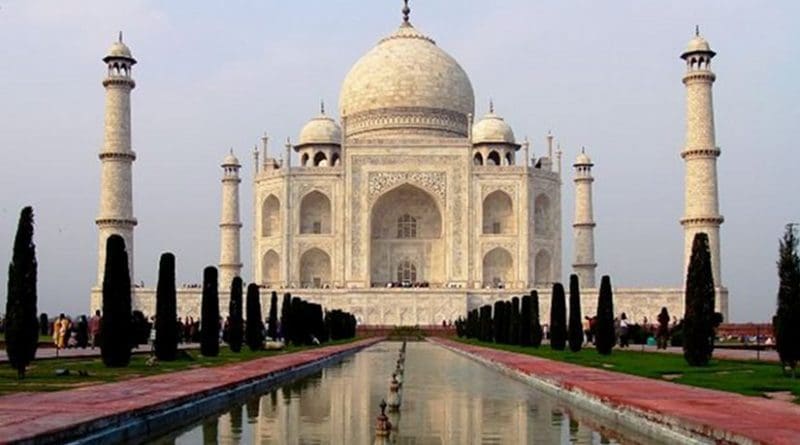Rising Spectre Of Diminishing Values In India – OpEd
A decade ago, I decided to surprise my teenage children with the announcement that I would be taking them to India for a short holiday. My distinct memories from having visited the country with my parents when I was a child left me with impressions of cultures and civilisations that one reads in history books. And then there was the Taj Mahal, one of the seven Wonders of the World, a beacon of global attraction.
At the time, there were a few objections from my family members and friends, who were somewhat alarmed and they peppered me with the question: “But why India?” Why not, I would reply. Their answers were somewhat patronising. India, they would say, is dirty, crowded and backward and we’d be sure to catch one of many diseases. I would be exposing my children to viruses and bacteria of gargantuan proportions. Malaria, diarrhoea, cholera and the plague were commonplace they said, and how could I be so insensitive or naive to expose my children to such deadly threats, all for the sake of seeing some old monuments?
I explained to them that I wanted my children to see India first-hand and not to have the impression that, unfortunately, a lot of us Saudi nationals and others in Saudi Arabia have about the country. I wanted to expose my family to a diverse culture that they had not experienced before. I thanked them for their concerns over health-related issues, but assured them that we would be taking all the necessary precautions.
However, with such a steady stream of warnings, doubts began to creep within me, creating some unsettling feelings. Was I being rash, expecting to be in India without getting into some debilitating medical condition? What about my children? Was I foolishly exposing them to transmittable diseases and possible harm? Going to a country with a population of more than a billion people, was I being immature and stubborn in not paying attention to my friends’ and family members’ concerns? Those were soon put to rest by a friendly official at the Indian diplomatic mission in Jeddah, who reassuringly advised me to “Drink only bottled water and eat only in the hotels you would be staying in”.
As we spun through Chennai, Delhi, Agra and Mumbai, my children were amazed. And they loved it. The hustle and bustle of Chennai, with its serene shorelines dotted with resorts and retreats offering world-class services; the grandeur of the Rashtrapati Bhavan (presidential palace) in New Delhi; the beauty of Marine Drive in Mumbai; topped with our visit to the majestic Taj Mahal in Agra had my children chirping in unison that this was indeed a trip of a lifetime. And from our observations, we were pleasantly surprised to find parts of India cleaner than our own city in Saudi Arabia! The roads in India, although crowded, were not run-down as some in Saudi Arabia are, and the Indians seemed more prosperous than we could imagine.
Yes, we drank only bottled water, but also ate at local restaurants. We witnessed wealth and we saw poverty. We learned about their great history and we observed massive new projects being built — designed to make life easier for an average Indian. We came back, truly enlightened with our Indian experience.
In spite of their diverse cultures and religions, India seemed to be tolerant at the time and moving forward and did not seem to be bogged down by what people in the Saudi Kingdom were suffering from: Fanaticism and intolerance on the part of a few who wanted to impose their vision on the rest of the people.
Alas, today, I cannot feel the same way about India. While Saudi Arabia has made tremendous strides in quashing the tide of extremism and fundamentalism within its borders, I am alarmed at the rising wave of such destructive philosophy within India’s borders. It is undeniable that much of this ominous change in direction had started with the victory of the Bharatiya Janata Party (BJP) at last year’s general elections.
In a country that prides itself on its secularism, it is shocking to see and hear some of India’s lawmakers revealing their intolerance through comments on racial, religious and ethnic lines that are meant to pander to a section of the Hindu masses in the country. Some states in India adopted the ‘no-beef’ policy — in clear violation of the nation’s secular ethos. A Muslim male suspected of having eaten beef was dragged out of his home by a frenzied mob and lynched. Two children from the minority Dalit (backward class) community were burned alive in the state of Haryana.
For a country with a sizeable Muslim minority as well as Christians, Sikhs and others of different faiths, these incidents do not augur well for its future. The masses in the towns and villages of a vast country like India do not seem to be very well-informed about the need for the country to safeguard its secular credentials. Instead, they fall prey to divisive oratories delivered by some members of the ruling BJP and other rightist forces who are intent on stamping their own brand on the country’s identity. Politicians in India have historically been the driving force behind the discord between communities.
India should, under no circumstances, allow a divisive agenda — based on caste, creed, religion or ethnicity — to spread its roots in a soil that is known to have anchored plurality and tolerance in every sphere of life for centuries.
This article appeared at Gulf News and is reprinted with permission.

